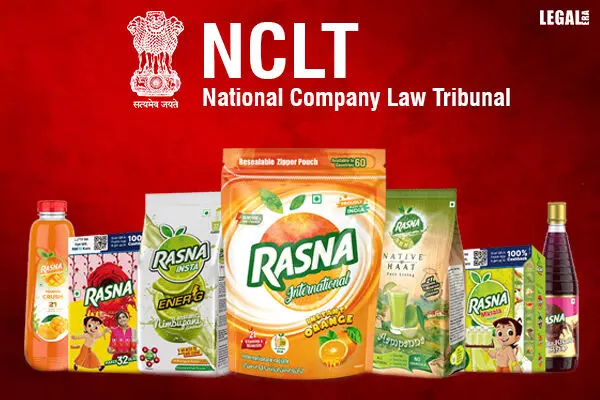- Home
- News
- Articles+
- Aerospace
- Agriculture
- Alternate Dispute Resolution
- Banking and Finance
- Bankruptcy
- Book Review
- Bribery & Corruption
- Commercial Litigation
- Competition Law
- Conference Reports
- Consumer Products
- Contract
- Corporate Governance
- Corporate Law
- Covid-19
- Cryptocurrency
- Cybersecurity
- Data Protection
- Defence
- Digital Economy
- E-commerce
- Employment Law
- Energy and Natural Resources
- Entertainment and Sports Law
- Environmental Law
- FDI
- Food and Beverage
- Health Care
- IBC Diaries
- Insurance Law
- Intellectual Property
- International Law
- Know the Law
- Labour Laws
- Litigation
- Litigation Funding
- Manufacturing
- Mergers & Acquisitions
- NFTs
- Privacy
- Private Equity
- Project Finance
- Real Estate
- Risk and Compliance
- Technology Media and Telecom
- Tributes
- Zoom In
- Take On Board
- In Focus
- Law & Policy and Regulation
- IP & Tech Era
- Viewpoint
- Arbitration & Mediation
- Tax
- Student Corner
- AI
- ESG
- Gaming
- Inclusion & Diversity
- Law Firms
- In-House
- Rankings
- E-Magazine
- Legal Era TV
- Events
- News
- Articles
- Aerospace
- Agriculture
- Alternate Dispute Resolution
- Banking and Finance
- Bankruptcy
- Book Review
- Bribery & Corruption
- Commercial Litigation
- Competition Law
- Conference Reports
- Consumer Products
- Contract
- Corporate Governance
- Corporate Law
- Covid-19
- Cryptocurrency
- Cybersecurity
- Data Protection
- Defence
- Digital Economy
- E-commerce
- Employment Law
- Energy and Natural Resources
- Entertainment and Sports Law
- Environmental Law
- FDI
- Food and Beverage
- Health Care
- IBC Diaries
- Insurance Law
- Intellectual Property
- International Law
- Know the Law
- Labour Laws
- Litigation
- Litigation Funding
- Manufacturing
- Mergers & Acquisitions
- NFTs
- Privacy
- Private Equity
- Project Finance
- Real Estate
- Risk and Compliance
- Technology Media and Telecom
- Tributes
- Zoom In
- Take On Board
- In Focus
- Law & Policy and Regulation
- IP & Tech Era
- Viewpoint
- Arbitration & Mediation
- Tax
- Student Corner
- AI
- ESG
- Gaming
- Inclusion & Diversity
- Law Firms
- In-House
- Rankings
- E-Magazine
- Legal Era TV
- Events
Gujarat High Court Stays NCLT Order Against Rasna Industries

Gujarat High Court Stays NCLT Order Against Rasna Industries
The tribunal had directed initiation of Corporate Insolvency Resolution Process against the company over Rs.71.27 lakh default
The Gujarat High Court has provided a major relief to Rasna Industries by staying the order of the National Company Law Tribunal (NCLT), directing the initiation of insolvency proceedings against the homegrown beverage brand.
Recently, the Ahmedabad bench of the NCLT directed the initiation of the Corporate Insolvency Resolution Process (CIRP) against Rasna over a default of Rs.71.27 lakh. Also, while suspending the Board, the tribunal appointed Ravindra Kumar Goyal as an Interim Resolution Professional (IRP).
However, the promoters of Rasna challenged the NCLT order before the high court, which stayed the verdict till an appeal was filed against it before the National Company Law Appellate Tribunal (NCLAT) was listed.
The Gujarat High Court bench of Justice V D Nanavati stated, ‘Considering the aforesaid, by way of ad-interim relief, the said order dated 01.09.2023 is directed not to be acted upon till the statutory appeal which is filed before the NCLAT is listed for hearing in the peculiar facts.”
The tribunal had passed the order on the petition filed by the operational creditor Bharat Road Carriers, which claimed a default of Rs.71.27 lakh. It also claimed an interest on service tax and unpaid amounts as of 31 March 2019. The company stated it had transported various goods to Rasna and raised invoices from April 2017 to August 2018.
Though Rasna acknowledged availing transportation services from Bharat Carriers, it cited pre-existing disputes between the entities.
In November 2018, the transporter instituted a civil suit for damages amounting to Rs.1.25 crore before the commercial court in Ahmedabad.
As the case was referred for mediation, during the process, the operational creditor did not appear before the mediator. Hence, it failed.
The tribunal said that Rasna failed to provide reasons for the dispute to the operational creditor.
It stated, “The arguments for the dispute appear to be moonshine. The applicant has proved that there is a default, and the amount is more than Rs.1 lakh. Under the circumstances, the tribunal is left with no other option than to proceed with the case and initiate the CIRP in relation to the corporate debtor."



